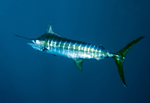Anti-US Protests Spread Throughout Muslim World | Les manifestations anti américaines se propagent à tous les pays du monde musulman
By Alex Lantier, WSWS. Protests that began one week ago at US embassies in Egypt and Libya are rapidly spreading throughout the Muslim world. The protests reflect broad popular opposition to Washington’s wars, its violation of elementary democratic rights in the conduct of the “war on terror,” and its exploitation of the region as a source of cheap labor. (English | French)
Continue reading →


